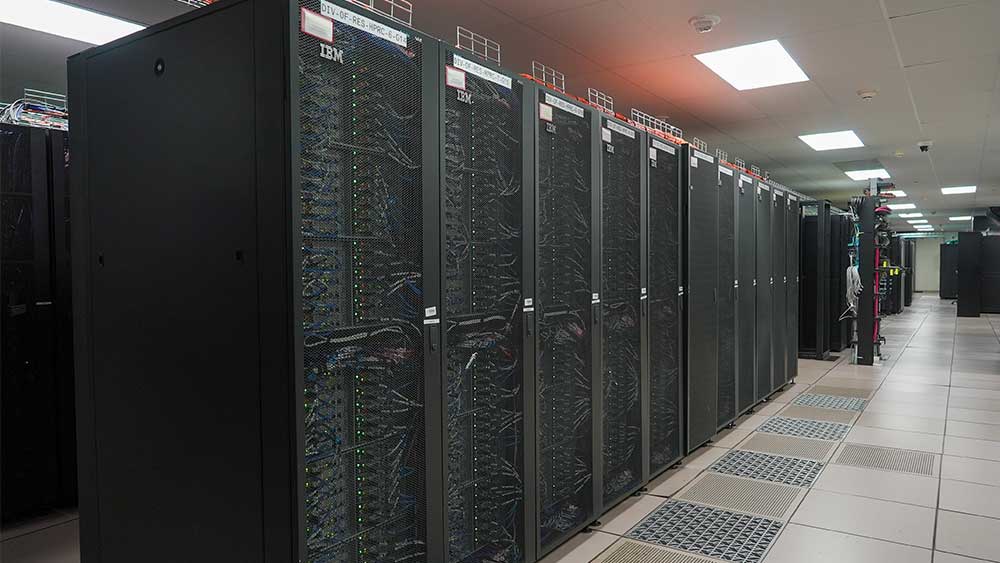
What is the Computing and Digital Technology Industry?
Engineers in the computing and digital technology industry apply their knowledge to the design of computing systems and software in various areas. These areas include mobile devices, computers, servers, data science, computer networks, computer vision, pattern recognition, robotics, cybersecurity and embedded systems.
Majors that Could Lead to Computing and Digital Technologies Careers
Students interested in computing and digital technologies careers could start their career paths through several majors offered by the Texas A&M University College of Engineering.
See below for a list of some of our majors that could lead to a computing and digital technologies career.
- Aerospace engineering: Aerospace engineering students have knowledge of and experience with a computer language and various simulation software used for computer aided design, virtual reality and artificial intelligence. These skills are beneficial within the computing and digital technologies career field.
- Civil and environmental engineering: Civil engineers use current and emerging computing and digital technologies to design more resilient infrastructure, transportation, materials and transportation systems. They also address economic, environmental and societal impacts and challenges.
- Computer engineering: As a computer engineering major, you will learn about computers, operating systems, computer architecture and microprocessor design.
- Computer science: Computing and digital technologies benefit multiple industries through digital infrastructures that impact big data, virtual reality, wireless networks and communication, visualization, computer gaming graphics, animation and more. This field includes the design of computers, operating systems, computer architecture and microprocessors. The demand for expertise in this diverse sector is on the rise.
- Electrical engineering: Electrical engineers work in computer hardware design, peripherals (cameras, computer mouses, etc.) and wireless networks.
- Electronic systems engineering technology: Expertise from this major is highly sought for programming the latest technology in microcontrollers, field-programmable gate arrays and single board computers.
- Environmental engineering: Environmental engineers use current and emerging computing and digital technologies to design more resilient and environmentally-conscious infrastructure, transportation, materials and transportation systems. They also address economic, environmental and societal impacts and challenges.
- Industrial and systems engineering: Industrial engineers are trained in data science, which allows them to create new technology and improve existing processes. Expertise in both of these topics is needed in the computing and digital technology career field.
- Industrial distribution: Industrial distribution involves sales, e-commerce, digital marketing and customer experience, as well as service of computing, networking and electronic products and services. Employers in the computing and digital technology career field seek out workers with skills in these areas.
- Materials science and engineering: Materials engineers seeking a career within computing and digital technologies will be well-versed in data science and computational materials design techniques to help dramatically improve the rate of research progress in the field.
- Mechanical engineering: Mechanical engineering includes an in-depth study of hardware design, cooling system design, housing design, packaging design and software design, development and testing. Employers seek skills in all of these areas in the computing and digital technology career field.
- Multidisciplinary engineering: The computing and digital technology field is a rapidly advancing area where computer science intersects with the arts, humanities or social sciences to provide the ability to approach problem-solving from a broader perspective. Multidisciplinary engineers commonly possess this combination of knowledge and experience.
- Multidisciplinary engineering technology: This major involves smart manufacturing, cyber manufacturing, automation and industrial robotics. Employers in the computing and digital technology career field seek out workers with skills in these areas.
- Ocean engineering: Ocean engineers are well versed in computing and digital technologies. They enter the industry for the development of numerical programs for analyzing ocean systems such as digital twins, ocean wave propagation, hurricane and storm surge prediction, transportation of sediments along coasts and offshore, analysis and design of mooring systems for offshore, and coastal applications related to energy production and transportation of energy products. Ultimately, they train and hone their computational skills to apply to various industry sectors.
- Petroleum engineering: Petroleum engineers implement current and emerging computing and digital technologies. By doing so, they improve the functions of multiple systems of drilling and production processes, and they create the machine-learning programs needed for automating functions and simulating subsurface conditions and reservoir management needs.